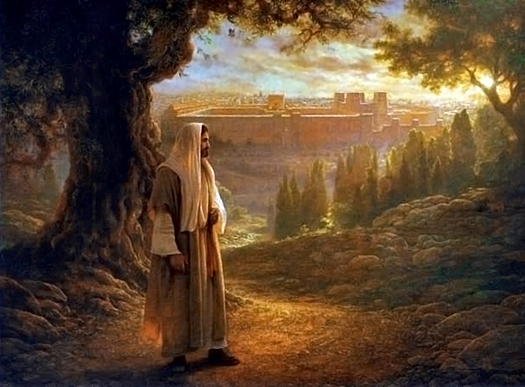
The sacred season of Lent is upon us beginning with Ash Wednesday, today. One of my church members sincerely asked me yesterday: “What does the Bible require us to do during the Lent season?” He was not concerned what people do out of their tradition or what the church expects us to be doing, but specifically what do the scriptures teach and expect us to follow. He knew about the requirements in the religion of Islam during Ramadan—a thirty day period of strict fasting— and wished to know if believers in Christ, too, had such requirements. I told him there are no such biblical requirements. However, for further clarification for his sake and for many who might be reading this, I would like to briefly state how Lent came to be observed in the early church. A historical view is also needed due to such a diversity of opinions and usage of fasts and other traditions among different shades of Christians.
Lent is usually associated with fasting for forty days before Easter. That’s why one of the earliest terms used for Lent was “Quadragesima” in Greek and Latin, which referred to the length of forty days of fasting observed by Christians. The fasting season was also called “Ante-Paschal Fast” which meant the fasting observed before the paschal feast or the Jewish Feast of the Passover. Christians later termed it as a fasting time before the Easter celebration. The more popular and current term, “Lent”, is derived from the old English word for Spring season, “Lencten”, which, perhaps, has to do with the lengthening of days during the spring.
When it comes to observation of the Lenten season through fasting, there is hardly any reference in the New Testament. However, it cannot be denied that the Bible has a long tradition of penance, fasting, and prayers and the Lord Jesus Christ fasted for forty days and forty nights during his temptation in the wilderness (Matthew 4: 1-2; Luke 4: 1-2). The Lent observance, therefore, falls back on this tradition of fasting by Jesus for forty days. However, nowhere did Jesus ask his disciples to do this before Easter.
The observance of Lent in the form of fasting before Easter emerged gradually. It is first mentioned by church fathers such as Irenaeus and Tertullian in the latter half of the second century. However, there is a controversy as to the length of the fast, as they refer to fasting for only one or two days or forty hours—the length of time Jesus spent buried in the tomb before his resurrection. Even this short fasting was observed mainly by those believers who were preparing for baptism which was often conducted on Easter. Many other believers in the church also fasted along with new believers if they could. However, it was not until after the famous Council of Nicea, which was held in 325 AD, that the length of fast was fixed at forty days. Thus, it was not until the middle of the fourth century that Lent came to be observed widely in the church. Even then, the rigorous fast was mostly observed during the week preceding Easter, often called the “Holy Week.”
The number forty in the Lenten fast shouldn’t surprise us because of the prevalence and ubiquity of not only “forty” in the Scriptures but also the fasting for forty days (see, Genesis 7: 4, 12, 17; 50: 3; Exodus 16: 35). Moses fasted twice for forty days (Exodus 34: 28; Deuteronomy 9: 9, 18). Elijah went without food for forty days fleeing Jezebel (I Kings 19: 7-8). People of Nineveh fasted for forty days to escape the wrath of God (Jonah 3: 4). And finally, as mentioned above, Jesus himself fasted for forty days.
What should believers do today, then, in the face of lack of a clear instruction in the Bible for fasting before Easter? To me, the most reasonable course of action seems to be to follow the apostolic dictum found in Romans 14: 5: “One person considers one day more sacred than another; another considers every day alike. Each of them should be fully convinced in their own mind.” So, whether you fast or not, whether you give up something or not for Lent, the overall purpose during this Lenten season of 2015 should be to hit the pause button on our very busy life and take stock of our spiritual journey. This solemn period should be spent more in taking an inventory of our spirituality than in deciding what we should eat and what we shouldn’t eat, or what we should give up and what we shouldn’t give up. If we are still more concerned about this food and fasting; then, we are missing the point of this sacred season in our Christian life, that is, to walk in the footsteps of Jesus Christ, to follow Him, to learn from Him, and to be like Him. Let us give up glorying in our self-righteousness or in our own pious works of fasting and giving up material stuff, instead, let us take this time to clothe ourselves in the righteousness that comes through believing the Son of God who gave up his very life for us. I would like to invite you to join me on this Lenten season, as I try to blog here almost every day of the forty day period. Your feedback on these posts is appreciated. Thank you.
Be First to Comment